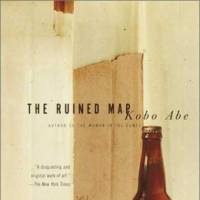Angela Carter wrote that Tokyo possessed the "indecipherable clarity of a dream," one in which you might think you are in control, but have, in fact, been "precipitated into somebody else's dream." A similar sensation occurs when reading Kobo Abe's novel, "The Ruined Map," though he is careful never to mention the capital by name.
The Ruined Map, by Kobo Abe
Translated by E. Dale Saunders.
vintage, Fiction.
The work illustrates how familiar, but essentially unfathomable cities can be in their self-cultivated anonymity and complexity. Ostensibly the story of an investigation by a private detective into a missing husband case, the city becomes, in the author's effort to peel away the multiple layers of meaning in the urban labyrinth, the main character, its inhabitants subordinate actors in its own narrative.
In Abe's imaginative construct, his trademark fondness for the surreal and existential are evident. In one passage he observes, "Spatially there was no doubt that the town existed, but temporally it was the same as a vacuum."
We come to learn that in such cities there is a great deal of happenstance, the workings of an elusive synchronicity of which we are only partially aware. This densely atmospheric novel is a journey into the darkly seductive sinews of this modern kind of cosmopolis. There are no easy solutions to the investigation, and in the end we are left with a city that is more enigmatic than ever.
Each week "Essentials" introduces a work of fiction that should be on the bookshelf of any Japanophile.



